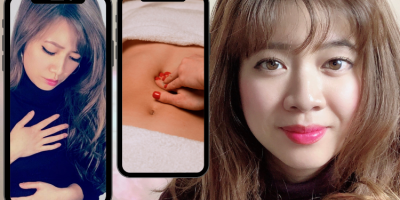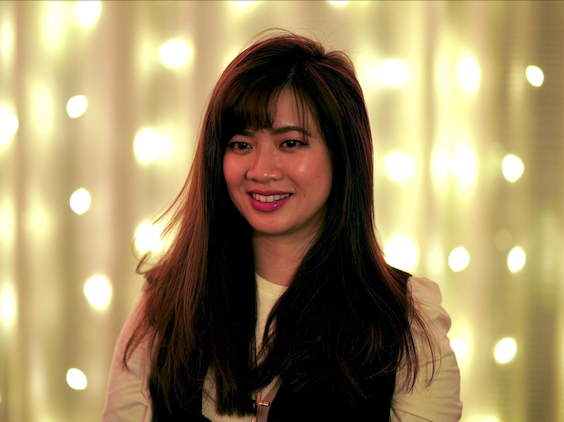Do you ever feel like you’re carrying the weight of everyone else’s emotions, leaving you completely exhausted? If you’re an empath, that drained feeling might be all too familiar, and you might not even realize why your energy keeps slipping away. I’ve been there, pouring myself out without understanding how my openness was tied to old wounds. Let’s dive into why this happens, how it affects your health, and what you can do to take back your power. This is for you—because you deserve to feel whole, vibrant, and in control of your energy.
The Empath’s Drain: Where It All Begins
Being an empath means you feel everything deeply—not just your own emotions but everyone else’s too. It’s a beautiful gift, but it can become a heavy burden when you’re wide open to everyone, all the time. For me, this started way back, rooted in childhood neglect and a complete lack of boundaries. I used to think being open was my strength, but it wasn’t always a choice. It was conditioning—people-pleasing to keep the peace with those who didn’t respect my space. Sound familiar?
This kind of openness isn’t the brave, intentional kind. It’s a vulnerability that comes from not knowing how to say no, from tolerating behaviors that hurt you. According to Psychology Today, empaths often struggle with boundaries because they absorb others’ energy so intensely. Without realizing it, you’re giving away your life force, and it leaves you drained—mentally, emotionally, and even physically. If you’re nodding along, wondering why you’re so tired, this might be where it starts.
How Unhealed Wounds Keep You Drained
That constant openness? It’s often tied to an unhealed wound. For me, it was chasing validation from relationships that echoed old patterns—like with narcissistic partners or family dynamics. I didn’t see it at the time, but I was addicted to those connections, hoping they’d fill a void. Spoiler: they never did. Instead, they drained me further.
When you’re stuck in this cycle, your unconscious mind runs the show. You’re projecting that need for healing onto every relationship—romantic partners, coworkers, even strangers on social media. It’s like you’re searching for something that never comes, and it’s exhausting. Healthline explains that codependent patterns—where you prioritize others’ needs over your own—can amplify this, leaving you feeling empty. You’re not just tired; you’re pouring your energy into a black hole, and it’s time to understand why.
The Physical Toll: Gut Issues and Immune Struggles
Here’s where it gets real: that emotional drain doesn’t just mess with your head—it hits your body hard. When you’re constantly giving away your energy, your nervous system stays on high alert. That chronic stress can lead to gut issues like bloating, IBS, or discomfort, and it can weaken your immune system, making you more prone to colds or fatigue. Research from Cleveland Clinic shows chronic stress suppresses immunity, and for empaths, that lack of boundaries only makes it worse.
Then there’s the internalized abuser—the part of you that beats yourself up, ignores your own needs, or pushes you to tolerate what doesn’t serve you. That self-abuse is like a double hit: you’re draining yourself from the inside while the world takes from the outside. For me, ignoring my needs led to gut flare-ups and feeling run-down all the time. Your body feels the weight of those unhealed patterns just as much as your spirit does. If your gut’s acting up or you’re always sick, it might be your body begging you to protect your energy.
Waking Up to Your Patterns
You can’t change what you don’t see. For me, the turning point was sitting in silence, really facing why I felt so drained. I realized I was chasing relationships that mirrored my past, hoping they’d fix me. They didn’t. But that moment of awareness? It was everything.
To start healing, you have to wake up to these patterns. Ask yourself: Why am I so open to everyone? Is it courage, or is it conditioning? Journaling can help here. Verywell Mind suggests writing down moments when you feel drained to spot triggers. Maybe it’s that friend who vents but never listens, or a partner who dismisses your needs. Seeing these patterns is the first step to breaking free. You’re not stuck—you’re just starting to see the truth, and that’s powerful.
Healing the Original Wound
The real work is healing that core wound—the one that keeps you seeking validation from unhealthy sources. For me, it was facing the neglect from childhood, the way I learned to tolerate abuse to feel loved. It’s not easy, but it’s worth it. Therapy, meditation, or energy work can help you dig into that original pain and start to release it. According to Greater Good Magazine, facing past trauma with professional support can rewire how you relate to yourself and others.
Therapy was a game-changer for me—a safe space to unpack those wounds and learn to stop giving my power away. It’s not about closing yourself off; it’s about choosing who gets your energy and why. If you’re ready to heal, reaching out to a therapist can be the first step to reclaiming your energy. You don’t have to do this alone—help is out there, and you deserve it.
Setting Boundaries: Your Energy Shield
Setting boundaries is like building a shield for your soul. It’s not selfish—it’s survival. Start small: say no to something that doesn’t feel right, like a last-minute favor that leaves you stretched thin. Notice how it feels to protect your energy. Mayo Clinic emphasizes that boundaries reduce stress and improve mental health. For empaths, this is crucial—your sensitivity means you need to be discerning about who gets access to you.
Try this: before you say yes to someone, pause. Ask yourself, Is this person a safe space for my energy? If the answer’s no, it’s okay to step back. You’re not being mean—you’re being sovereign. This discernment turns your vulnerability into strength, rooted in choice rather than conditioning. Over time, these boundaries will help you feel less drained and more in control.
Taking Back Your Power
Here’s the truth: you’re not doomed to feel drained forever. That exhaustion comes from giving your power away, from old wounds and patterns that don’t serve you anymore. But you can change it. You can heal that core emptiness by facing it, not running from it. You can stop projecting that need for validation onto the world.
Start by being kind to yourself. That internalized abuser? It’s time to quiet that voice. Replace it with one that says, I’m enough. Meditation can help—try a five-minute practice where you just breathe and let go of everyone else’s energy. Pair that with therapy to dig deeper into those wounds. BetterHelp offers accessible options to connect with a therapist who can guide you through this. Small steps like these build up, helping you reclaim your energy and feel whole again.
Your Next Step: Reach Out for Support
You’re not meant to stay drained, and you’re not meant to carry the world’s weight. As an empath, your sensitivity is your superpower, but only when you protect it with boundaries and heal those old wounds. If you’re ready to stop feeling exhausted, take that brave step and reach out for therapy. A trauma-informed therapist can help you untangle those patterns, heal the hurt, and teach you how to hold your energy sacred. For a trauma-informed therapist who completely understands you and can help, feel free to contact me for a free 15-minute consultation. Your energy is yours—reclaim it. Start today, because you deserve to feel light, whole, and in charge of your life.



